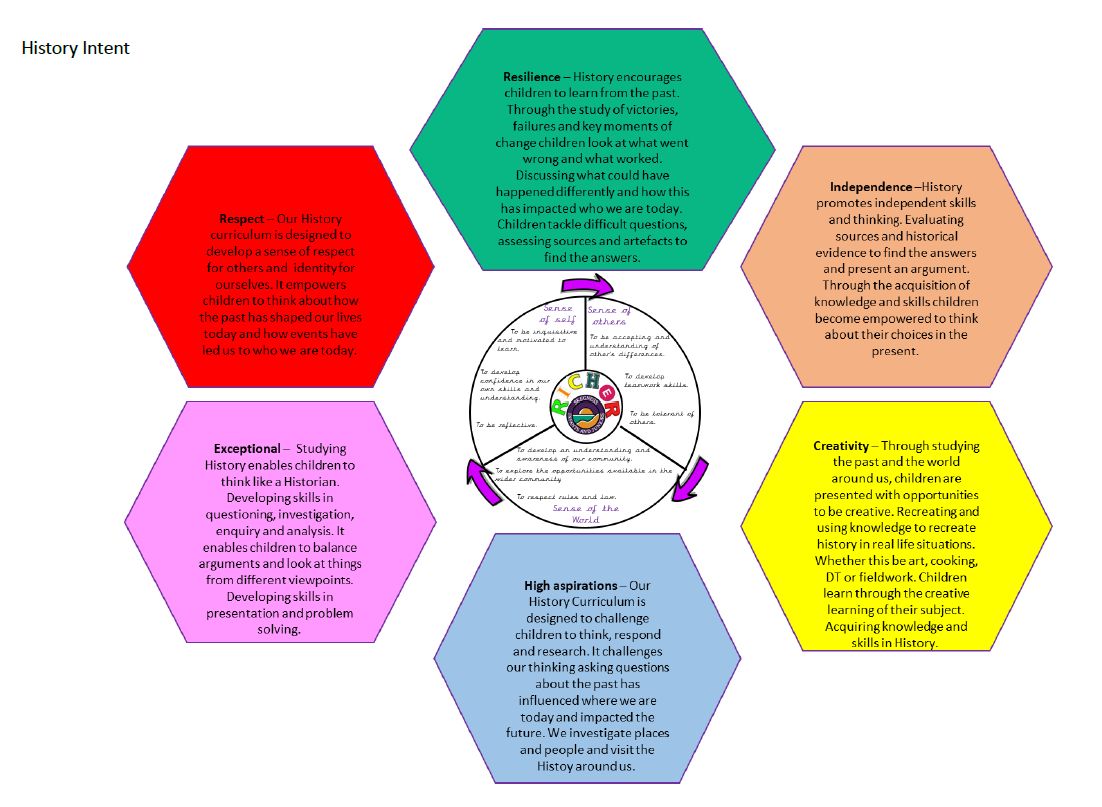History

Our History Curriculum
Welcome to the History curriculum at Skegness Junior Academy, where we embark on a fascinating journey through time and explore the richness of human experience.
At Skegness Junior Academy, we focus on both historical skills and substantive knowledge in our teaching and learning of history. For each unit of work, a "Historically Valid Question" is identified and answered as the children progress through the topic. Historical skills are focussed on in every lesson - these range from working with a variety of different timelines to studying sources and contemplating the concept of bias in upper Key Stage 2. Teaching and curriculum design reflect the relationship between this disciplinary knowledge and substantive knowledge, developing pupils' historical knowledge and analysis simultaneously; we aim for disciplinary and substantive learning to be carefully integrated, strengthening each other. Furthermore, we try to develop the more abstract substantive concepts such as trade, invasion, monarch and empire through the school, alongside the second-order concepts such as similarities and differences, cause and consequence and continuity and change.
In terms of substantive knowledge, we learn about a range of periods in history from prehistory to modern European history. Our learning is enriched by a variety of trips to places of historical interest and significance and by inviting different visitors and speakers into school. Skegness and the surrounding areas have a wealth of historical landmarks and opportunities, which are used to support the teaching of history and to enable children to see first-hand evidence of the past.
At the heart of our work is the belief that learning about the past is crucial to shaping a well-rounded perspective on the present and future.
The national curriculum for history aims to ensure that all pupils:
- know and understand the history of these islands as a coherent, chronological narrative, from the earliest times to the present day: how people’s lives have shaped this nation and how Britain has influenced and been influenced by the wider world
- know and understand significant aspects of the history of the wider world: the nature of ancient civilisations; the expansion and dissolution of empires; characteristic features of past non-European societies; achievements and follies of mankind
- gain and deploy a historically grounded understanding of abstract terms such as ‘empire’, ‘civilisation’, ‘parliament’ and ‘peasantry’
- understand historical concepts such as continuity and change, cause and consequence, similarity, difference and significance, and use them to make connections, draw contrasts, analyse trends, frame historically-valid questions and create their own structured accounts, including written narratives and analyses
- understand the methods of historical enquiry, including how evidence is used rigorously to make historical claims, and discern how and why contrasting arguments and interpretations of the past have been constructed
- gain historical perspective by placing their growing knowledge into different contexts, understanding the connections between local, regional, national and international history; between cultural, economic, military, political, religious and social history; and between short- and long-term timescales.
National Curriculum Programmes of Study: https://bit.ly/3gj1l3g
Please also visit our Long Term Planning for all year groups in the files section on our main curriculum page.
